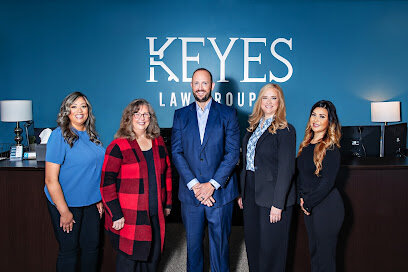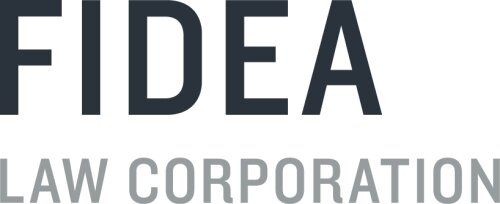Best Nursing Home Abuse Lawyers in California
Share your needs with us, get contacted by law firms.
Free. Takes 2 min.
Or refine your search by selecting a city:
List of the best lawyers in California, United States
About Nursing Home Abuse Law in California, United States
Nursing home abuse refers to any intentional act or failure to act that causes harm, risk, or distress to an elderly resident in a long-term care facility. In California, nursing home abuse is a serious legal and social issue that affects thousands of residents each year. The state has implemented both civil and criminal laws to protect vulnerable seniors from physical, emotional, financial, and sexual abuse, as well as neglect and exploitation. Recognizing and addressing such abuse is crucial to ensuring the safety and dignity of older adults in care settings.
Why You May Need a Lawyer
Victims of nursing home abuse or their loved ones often face complicated decisions and emotional stress. You may need a lawyer if:
- Your loved one is showing unexplained injuries, behavioral changes, or signs of neglect.
- The nursing home is unresponsive to your concerns or attempts to conceal information.
- There is evidence of financial exploitation, such as missing money or unauthorized transactions.
- A nursing home resident has suffered due to inadequate medical care or unsafe living conditions.
- You want to hold the facility accountable for violating California state regulations protecting seniors.
- You are unsure how to report abuse or navigate the legal system regarding elder care laws.
A qualified attorney can guide you through the process of gathering evidence, reporting to authorities, filing lawsuits, and securing compensation or justice for your loved one.
Local Laws Overview
California has strong protections in place for nursing home residents through the Elder Abuse and Dependent Adult Civil Protection Act (EADACPA) and the California Health and Safety Code. Key aspects of these laws include:
- Definition of Abuse: Encompasses physical abuse, neglect, abandonment, isolation, financial abuse, and failure to prevent health deterioration.
- Mandatory Reporting: Healthcare professionals and some others are legally required to report suspected elder abuse to Adult Protective Services or law enforcement.
- Resident Rights: Residents are entitled to be free from abuse, receive proper medical care, and live in a safe environment, as specified under the California Patient's Bill of Rights.
- Civil Remedies: Victims or their families can file civil lawsuits for compensatory and punitive damages against abusers and negligent facilities.
- Criminal Prosecution: Perpetrators of serious abuse may face criminal charges, which can include prison time and fines.
- Oversight: The California Department of Public Health inspects and regulates nursing homes, enforcing compliance with state and federal standards.
Understanding these laws is the first step in protecting your loved ones and seeking justice in cases of abuse or neglect.
Frequently Asked Questions
What are common signs of nursing home abuse?
Common signs include unexplained injuries, bed sores, sudden weight loss, poor hygiene, fearfulness around staff, withdrawal from activities, missing personal belongings, and unusual bank activity.
Who can report nursing home abuse in California?
Anyone can report suspected nursing home abuse, but certain professionals such as healthcare providers, social workers, and facility staff are mandated by law to report suspected cases.
How do I file a complaint about nursing home abuse?
You can file a complaint with the California Department of Public Health, Adult Protective Services, or local law enforcement. It is advisable to keep records and documentation of your concerns.
What legal remedies are available to victims?
Victims can seek compensation for medical bills, pain and suffering, and sometimes punitive damages. A criminal case may also be pursued against the abuser or negligent facility staff.
Is there a statute of limitations for nursing home abuse cases?
Yes, the time limit for filing a civil lawsuit in California is typically two years from the date the abuse is discovered. Certain exceptions can extend or limit the time allowed.
Can I sue a nursing home for neglect?
Yes, you may file a civil lawsuit against a nursing home if neglect leads to harm or injury. An attorney can help determine liability and the strength of your case.
What should I do if I suspect immediate danger?
If you believe a resident is in immediate danger, call 911 right away. After ensuring safety, you can report the incident to appropriate state agencies.
Are all types of abuse treated the same under California law?
No, physical, emotional, sexual, and financial abuses are each addressed under different sections of the law, with varying legal remedies and criminal consequences.
Can nursing home staff retaliate if I file a complaint?
California law strictly prohibits facilities from retaliating against residents or their families for making complaints. Retaliation should be reported and can be grounds for legal action.
How can an attorney assist me in a nursing home abuse case?
An experienced attorney can help investigate the abuse, gather evidence, handle communications with the facility or insurers, represent you in court, and ensure your rights are protected.
Additional Resources
Several organizations and agencies can provide information, support, and assistance if you suspect nursing home abuse in California:
- California Department of Public Health (Licensing and Certification Division)
- California Long-Term Care Ombudsman Program
- Adult Protective Services (APS)
- California Advocates for Nursing Home Reform (CANHR)
- California Department of Social Services
- Local law enforcement agencies for criminal matters
These resources offer guidance on reporting, investigating, and addressing suspected abuse or neglect cases in nursing homes.
Next Steps
If you or a loved one are experiencing or suspect nursing home abuse, it is important to act quickly. Start by documenting your observations, gathering any evidence, and reporting your concerns to the appropriate state agencies or law enforcement. For guidance on your legal options, consult with a California-based attorney who specializes in elder law or nursing home abuse cases. An attorney can help you navigate the process, protect your loved one's rights, and pursue the best possible outcome for your situation.
Lawzana helps you find the best lawyers and law firms in California through a curated and pre-screened list of qualified legal professionals. Our platform offers rankings and detailed profiles of attorneys and law firms, allowing you to compare based on practice areas, including Nursing Home Abuse, experience, and client feedback.
Each profile includes a description of the firm's areas of practice, client reviews, team members and partners, year of establishment, spoken languages, office locations, contact information, social media presence, and any published articles or resources. Most firms on our platform speak English and are experienced in both local and international legal matters.
Get a quote from top-rated law firms in California, United States — quickly, securely, and without unnecessary hassle.
Disclaimer:
The information provided on this page is for general informational purposes only and does not constitute legal advice. While we strive to ensure the accuracy and relevance of the content, legal information may change over time, and interpretations of the law can vary. You should always consult with a qualified legal professional for advice specific to your situation.
We disclaim all liability for actions taken or not taken based on the content of this page. If you believe any information is incorrect or outdated, please contact us, and we will review and update it where appropriate.
Browse nursing home abuse law firms by city in California
Refine your search by selecting a city.
















